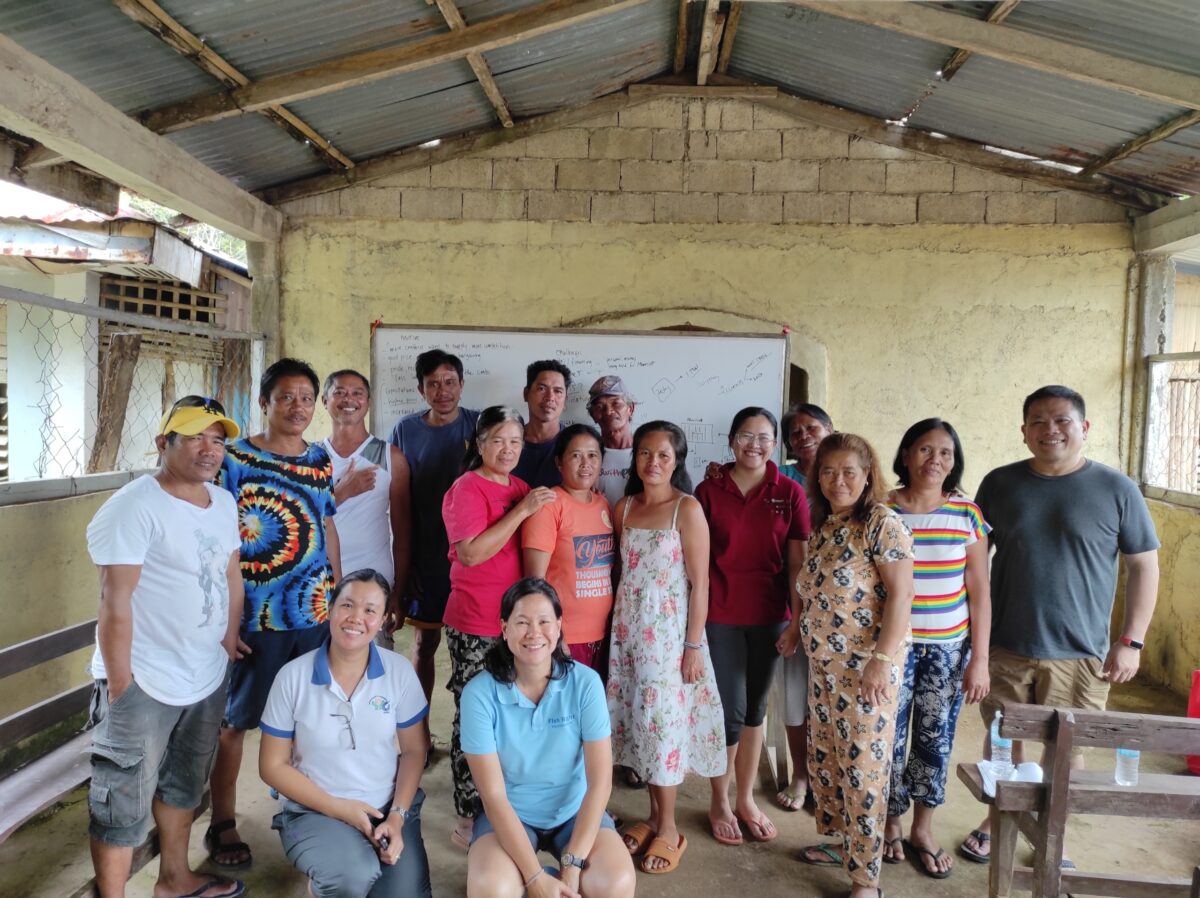Impact Stories
Building a path to responsible seafood sourcing in the Philippines
Local challenges require local solutions.
In the Philippines, SFP is engaging with local NGO Bluer Seas Philippines [LINK??] and domestic market actors to improve the environmental performance of fisheries and safeguard the livelihoods of fishing-dependent communities.
Nearly 2 million people work in fisheries-related industries in the Philippines, and 86% of wild-caught production comes from artisanal or small-scale fisheries. Yet, despite this strong seafood tradition, efforts to mainstream sustainability in the Philippine domestic fisheries sector are still emerging.
Only about 7% of the country’s wild fisheries are involved in sustainability programs, mainly species with significant demand in global markets, and there is little knowledge about the sustainability of fisheries supplying domestic markets. In addition, up to 40% of wild-caught seafood in the Philippines comes from illegal, unreported, and unregulated (IUU) fishing, resulting in estimated annual losses of Php62 billion (USD1.3 billion), while depleting fish stocks and damaging marine habitats.
Under a pioneering local initiative, Bluer Seas Philippines is working with domestic seafood buyers and producers to combat IUU fishing and promote responsible seafood sourcing, through a system specifically designed for the Philippines market context.
A timeline of progress on responsible seafood sourcing in the Philippines
Laying the groundwork
2016-2018: The private sector leads initial efforts and stakeholder dialogues to develop a domestic standard for sustainable seafood, primarily involving high-end hotels and restaurants.
2019: SFP develops the Better Seafood Philippines (BSP) initiative under the USAID Fish Right program. The initiative recognizes the importance of developing domestic markets as a pathway to fisheries improvements.
2020: Through BSP, SFP conducts a baseline assessment of the supply of and demand for sustainable seafood in the Philippines domestic market.
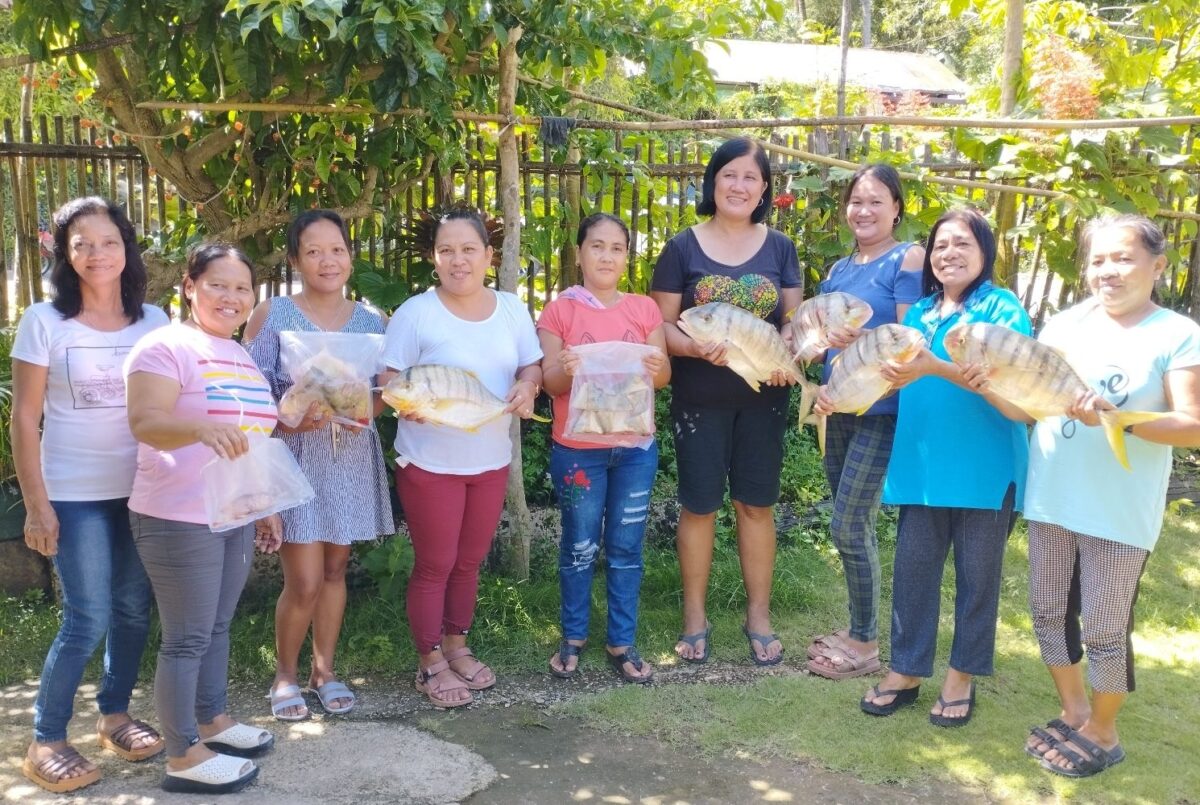
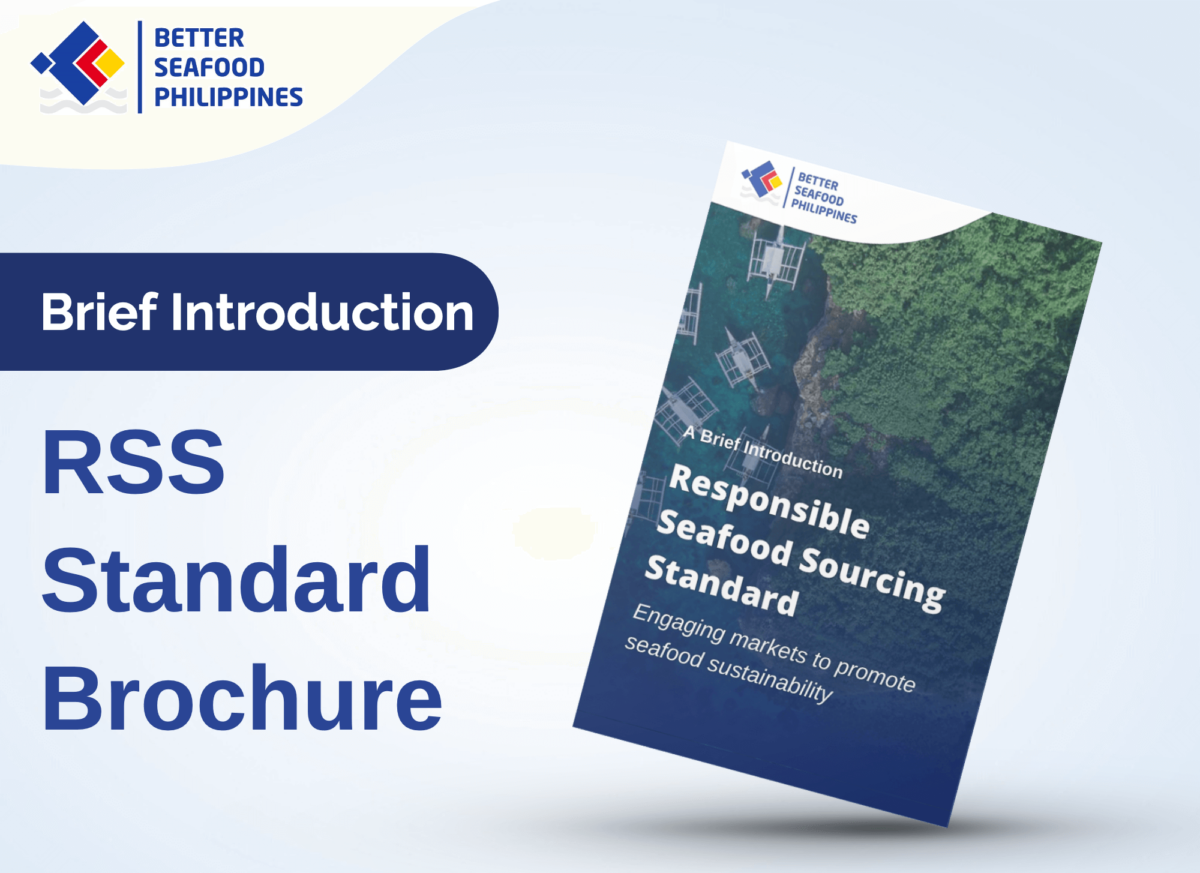
Developing the RSS Standard
2021–2022: BSP develops the Responsible Seafood Sourcing (RSS) Standard, a set of criteria to assess the performance of supply chain practices in the capture, sourcing, and trading of seafood. The Standard is organized around the key principles of legal compliance, traceability and transparency, sustainability commitments, and human and social welfare.
2022: The RSS is pilot tested with Philippines seafood companies, and BSP fosters partnerships with private sector businesses.
Building support in the domestic market
2022: In May, the first post-pandemic meeting is held with industry partners. Twelve major Philippines companies and brands commit to adopt and use the principles of the BSP program. As part of their commitments, the companies also agree to be leaders and champions in advancing sustainable seafood in the Philippines.
2022: In November, SFP and USAID bring together 36 Philippines seafood industry leaders in Quezon City to share their experiences with identifying best practices for Responsible Seafood Sourcing and integrating those practices into their business supply chains.
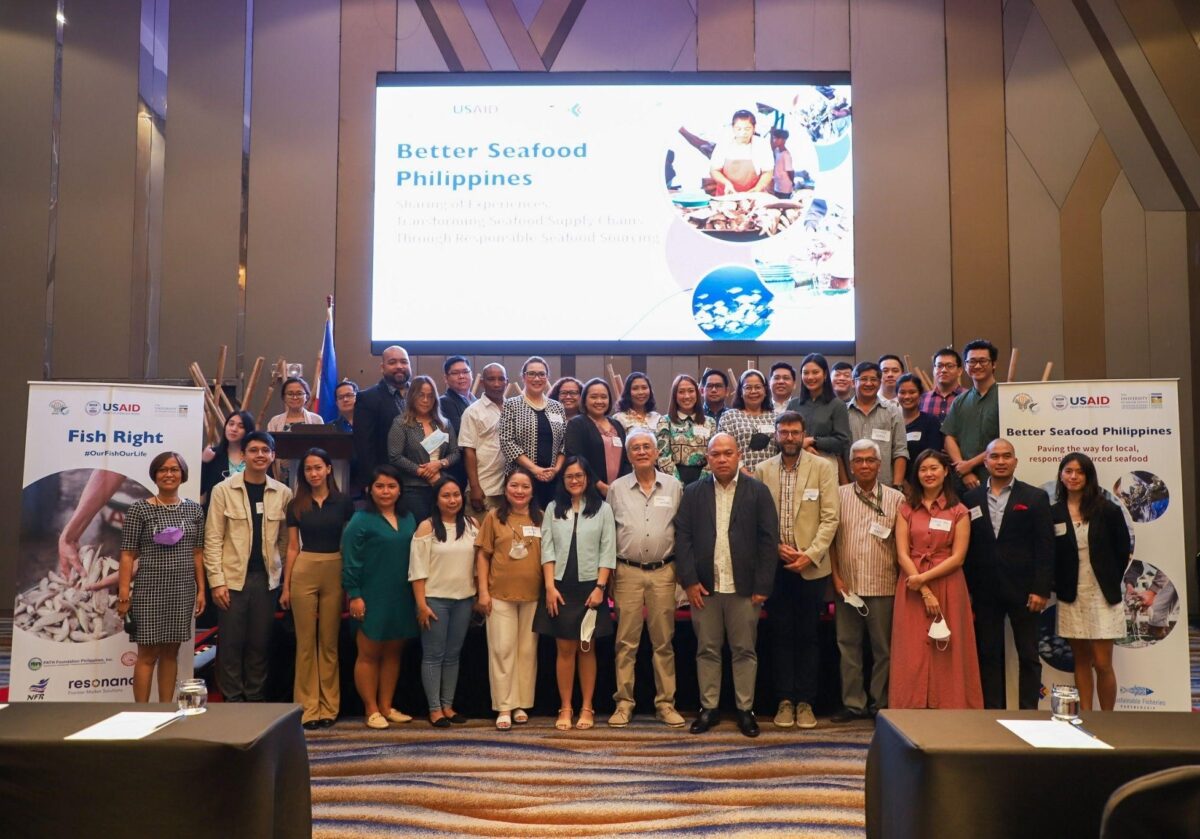
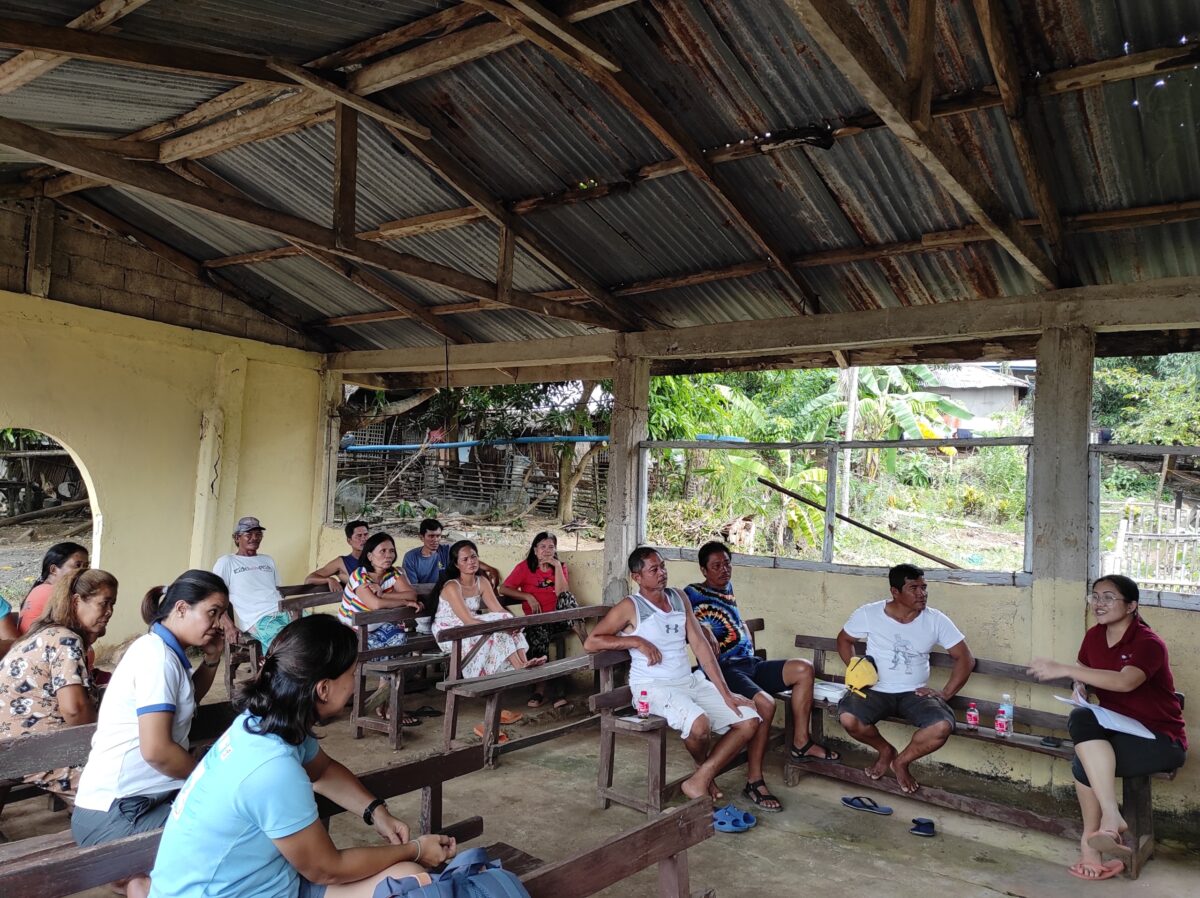
Empowering local actors
2022-2023: BSP works with fishing communities to strengthen artisanal producer organizations and women’s groups; provide post-harvest and food safety training and certifications; enhance access to infrastructure, equipment, logistics, and technology; and increase supply chain visibility and access to markets.
2023: SFP supports the creation of an independent local NGO, Bluer Seas Philippines (also BSP!), to maintain stakeholder engagement, strengthen the domestic market for responsible seafood, and build on the work of Fish Right and Better Seafood Philippines. The Bluer Seas approach is science-based, people-centered, and holistic and sustainable.
Expanding industry and government support
2023: To mark the International Day for the Fight Against IUU Fishing, USAID and SFP, through BSP, bring together key seafood industry players who commit to promote private sector adoption of the RSS practices to make seafood production, trading, and consumption more responsible.
2023: The first Responsible Seafood Summit is held in Manila in September. Hosted by USAID Fish Right, the summit brings together more than 200 people and recognizes RSS leaders, adopters, and advocates from fishing communities, businesses, and government.
SFP Senior Program Manager Becky Andong speaking on CNN Philippines about BSP’s work and the first Responsible Seafood Summit.
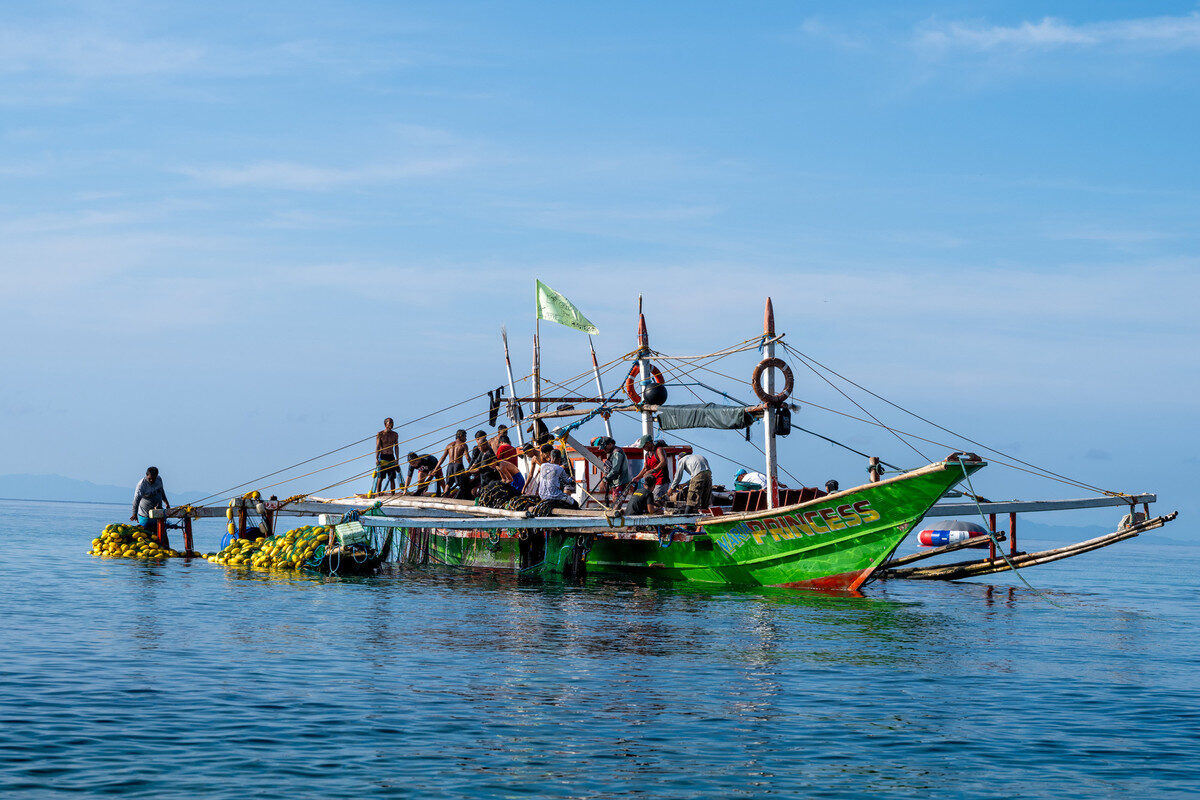
Looking to the future
2024: Bluer Seas begins to partner with more industry players, particularly on the retail side. RSS efforts are launched in Western Visayas.
2025: Faced with a shift in focus of the Fish Right program and a loss of funding for the RSS and markets work, Bluer Seas looks to diversify its funding sources. Several market partners step up to help fund the work. [IS THIS RIGHT? WHAT CAN WE SAY HERE?]
“Any contemporary Philippine business should engage in responsible sourcing to bring transparency to seafood supply chains and assure seafood legality. This helps protect our oceans and contributes to the Philippine effort to meet the UN 2030 Sustainable Development Goals.”
– Carina Ong-Tan, Fishta Seafood
